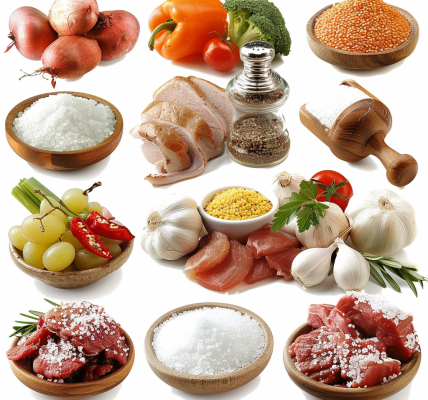Pumpkins are often celebrated as the quintessential symbol of fall, but their benefits extend far beyond seasonal decor. This vibrant fruit, scientifically categorized as a fruit due to its development from the seed-bearing structure of flowering plants, has emerged as a nutritional powerhouse that can be enjoyed year-round.
Recent findings from the Centers for Disease Control and Prevention (CDC) have placed pumpkins at the forefront of nutrient density among fruits and vegetables. While leafy greens like watercress have scored a perfect 100, pumpkins have impressively ranked as the most nutrient-dense fruit with a score of 32. This places them ahead of other popular fruits such as strawberries and blackberries, making them a top choice for health-conscious individuals.
According to Jessica Swift Harrell, a registered dietitian and chef certified in Integrative and Functional Nutrition, pumpkins are often underestimated. She emphasizes their numerous functional benefits, stating, “Pumpkin is high in antioxidants like beta-carotene, which are essential for combating free radicals and reducing inflammation in the body.” This antioxidant-rich profile contributes significantly to overall health and wellness.
In addition to their antioxidant properties, pumpkins are also a great source of dietary fiber. Fiber plays a crucial role in stabilizing blood sugar levels, promoting healthy digestion, and supporting a thriving gut microbiome. The versatility of pumpkins allows for their use in a variety of culinary applications, ensuring that individuals can easily incorporate this superfood into their daily meals.
Pumpkin Nutrition: A Closer Look
Understanding the nutritional composition of pumpkins can help individuals appreciate their value in a balanced diet. One cup (approximately 230 grams) of cooked pumpkin provides the following nutrients:
- Energy: 117 kcal
- Protein: 2.42 g
- Total Fat: 6.51 g
- Carbohydrate: 15.6 g
- Fiber: 1.15 g
- Total Sugars: 6.6 g
- Calcium: 50.6 mg
- Iron: 1.93 mg
- Magnesium: 29.9 mg
- Potassium: 814 mg
- Vitamin C: 18.4 mg
- Vitamin E: 3.27 mg
- Vitamin A: 996 µg
- Vitamin K: 8.51 µg
Health Benefits of Pumpkins
The health benefits of pumpkins are extensive, making them a valuable addition to any diet. Here are some key advantages:
- Rich in Antioxidants: The antioxidants found in pumpkins may help combat oxidative stress and reduce the risk of chronic diseases.
- Immune Support: Pumpkins are packed with nutrients that can bolster the immune system, helping the body fend off illnesses.
- Digestive Health: The fiber content in pumpkins promotes regular bowel movements and supports digestive health.
- Heart Health: The potassium and fiber in pumpkins can contribute to better heart health by regulating blood pressure and cholesterol levels.
- Eye Health: The high levels of beta-carotene in pumpkins are beneficial for eye health, potentially reducing the risk of age-related vision problems.
- Blood Sugar Management: Pumpkins may help in managing blood sugar levels, making them a suitable option for individuals with diabetes.
How to Prepare and Cook Pumpkins
Cooking pumpkins can slightly alter their nutrient composition, but they still maintain a robust nutritional profile. Here are some popular methods for preparing and cooking pumpkins:
- Roasting: Cut the pumpkin in half, remove the seeds, and roast it in the oven until tender. Roasting enhances the natural sweetness and flavor.
- Steaming: Steaming pumpkin preserves its nutrients and is a quick way to prepare it for soups or purees.
- Pureeing: Cooked pumpkin can be pureed and used in a variety of recipes, from pies to smoothies.
- Soups: Pumpkin soup is a popular dish that combines the fruit with spices and broth for a comforting meal.
- Seeds: Don’t forget about pumpkin seeds! Roasted pumpkin seeds make a nutritious snack and are rich in healthy fats and protein.
Pumpkins are not just for Halloween or Thanksgiving; they are a versatile and nutritious food that can be enjoyed throughout the year. Their impressive health benefits and culinary flexibility make them a staple in a healthy diet. By incorporating pumpkins into your meals, you can take advantage of their rich nutrient profile and enjoy a delicious addition to your plate.





